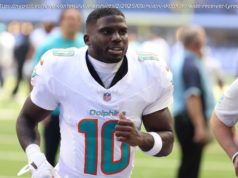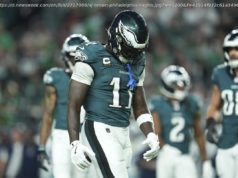Tesla shares tumbled nearly 9.7 percent Wednesday and Thursday — despite closing out 2018 with record sales and production numbers. Investors appeared to be focusing more on potential roadblocks that could be lying in wait, including a flood of new competition and the phase-out of the federal tax credits that offset the cost of Tesla’s battery-electric vehicles.
Sometimes you can’t get enough good news. Just ask Tesla investors who began 2019 by hammering the automaker’s stock over the first two trading days of the year.
Tesla shares tumbled 9.7 percent Wednesday and Thursday — despite closing out 2018 with record sales and production numbers.
Investors appeared to be focusing more on potential roadblocks that could be lying in wait, including a flood of new competition and the phase-out of the federal tax credits that offset the cost of Tesla’s battery-electric vehicles. It didn’t help that the company’s fourth-quarter deliveries — the number of cars delivered to customers — were released Wednesday and narrowly missed what analysts had been expecting for the final quarter of the year.
Tesla CEO Elon Musk marked the end of the year by tweeting congratulations to his team, and few would doubt they deserved his good words, as 2018 was a challenging year for the automaker. It started out with what Musk had dubbed « production hell » at the company’s Fremont, California assembly plant and saw the South African-born CEO himself create a series of crises, among other things, by claiming he had come up with a plan to take the company private. Now, the question is what will 2019 bring? And there, investors and analysts seem to disagree about whether the glass is half-empty or half-full.
After a tough 2018, Jessica Caldwell, the executive director of industry analysis at data service Edmunds, is one of the bears, warning that « Tesla is starting the year with a bitter dose of reality of what it means to be a grown-up car company. »
At first glance, that viewpoint might seem hard to understand. After all, the battery-electric automaker delivered about 245,000 vehicles in 2018, not only marking an all-time record but nearly matching what it had sold during its entire existence through the end of 2017. And demand rose every single quarter of the year, October-December deliveries exceeding those of the previous quarter by 8 percent.
Tesla is now the world’s number-one producer of battery-electric vehicles, handily surpassing established manufacturers like Nissan – which launched the world’s first mainstream BEV, the Leaf, in 2010 – and General Motors. But there’s the rub.
After having worked out most of the kinks at its Gigafactory battery plant in Reno, Nevada and its Fremont, California assembly plant, production has been humming at a rate of about 1,000 battery-cars a day, or 6,000 a week on a six-day schedule. And despite CEO Musk’s ambitious forecasts, that may be more than the market can bear, said Joe Phillippi, head of AutoTrends Consulting, and a veteran Wall Street analyst.
Electrek, a news site that closely follows the electric vehicle industry, reports that Tesla had 3,300 Model 3 sedans sitting in inventory as the ball dropped on the New Year. A Tesla spokesman declined to respond directly to the report but provided a statement that noted: « our inventory levels remain the smallest in the automotive industry, and we were able to reduce vehicles in transit to customers by significantly improving our logistics system in North America.






